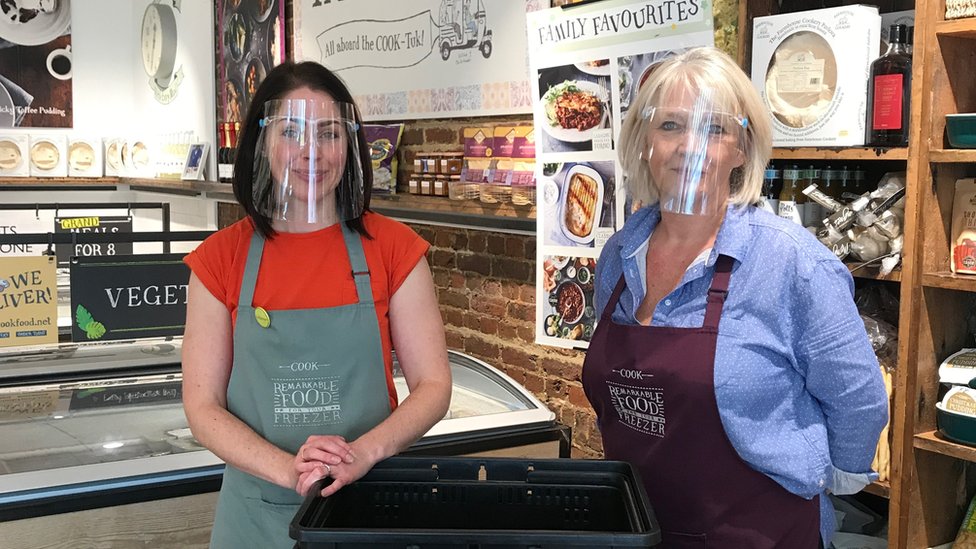Over 250,000 people who work for an employer who has voluntarily signed up to the "real living wage" are set for a pay boost of 20p to £9.50 an hour.
This is not to be confused with the compulsory National Living Wage, which is currently £8.72 an hour for anyone over the age of 25.
Real living wage employers in London will pay £10.85 an hour, a 10p rise.
The increase is designed to help workers and families through the pandemic.
Over 800 more employers have accredited with the Living Wage Foundation since the start of lockdown, including Tate and Lyle, Network Rail, Capital One, and the All England Lawn Tennis Club.
They join a network of almost 7,000 employers across the UK who are already paying this recommended rate to ensure all staff earns a wage that meets the real cost of living and covers everyday needs.
The latest research by the Living Wage Foundation shows that there are still 5.5 million jobs - 20% of all employees - still paying less than the real Living Wage in the UK.
Northern Ireland had the highest proportion of jobs paying below the Living Wage of 25.3%, while Scotland had the lowest at 15.2%.
Jobs held by women were more likely to be paid below the Living Wage in April 2020 than those held by men.
This gap has narrowed slightly since 2012 and continued to narrow in 2019-2020, but 60% of below-Living-Wage jobs - 3.3 million jobs - were held by women in April 2020.
The hospitality sector had the highest proportion of jobs paid below the Living Wage at 70.8%, followed by the arts, entertainment, and recreation sector at 36.8%.
The highest numbers of jobs paid below the Living Wage are in the wholesale and retail sectors with 1.3 million jobs, but they are much larger than the hospitality and arts, entertainment, and recreation sectors.
'It's important to pay people well'
Cook Food is a hand-prepared ready meals provider based in Kent with 90 retail shops and a home delivery service that started in 1997.
The firm accredited with the Living Wage Foundation in 2015 and says that it has continued to pay its workers a real living wage even during a couple of years when it wasn't doing so well.
"People are really important, a key part of our success," Cook Food's people director Alison Payne told the BBC.
She said that being able to afford to make ends meet was a key problem for young adults under the age of 25, who are not covered by the compulsory National Living Wage.
One of her employees, aged 24, previously had to work two jobs - a total of 56 hours a week - in order to afford to live.
But after joining Cook Food and being paid a real living wage was earning more working just 40 hours a week.
Since lockdown, the firm has increased its sick pay allowance, to help employees who might have to self-isolate.
"If we want to provide really good service in our shops and provide really good quality food, it's important to pay people well," said Ms Payne.
"We really do find the more we take care of people, the more they take care of us."


